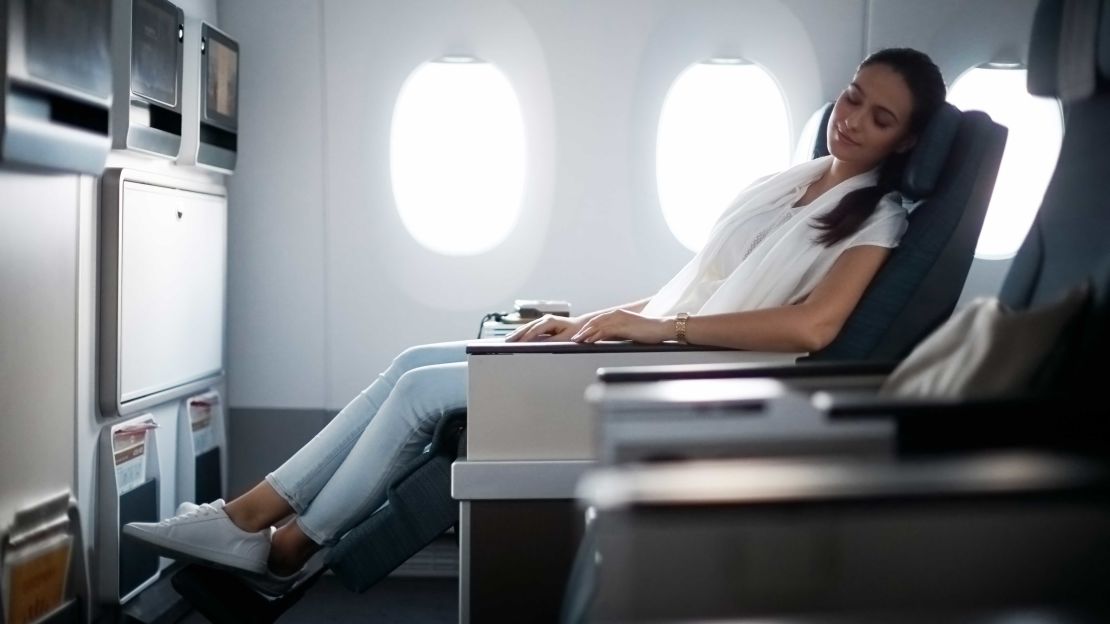Hong Kong airline Cathay Pacific has revealed it is recording passenger activity on its aircraft via inflight entertainment systems and video cameras, re-opening an uncomfortable debate over surveillance on airplanes.
The carrier, frequently named among the world’s best, outlined its information gathering in an updated privacy policy published at the end of July 2019.
Cathay confirmed it is collecting images of passengers while they’re on board as well as logging their usage of the in-flight entertainment system (IFE) and how they spend time during the flight.
The airline says the images are not captured from embedded seat-back cameras.
“In line with standard practice and to protect our customers and frontline staff, there are CCTV cameras installed in our airport lounges and onboard aircraft (one camera, positioned near the cockpit door) for security purposes,” a spokesperson for Cathay Pacific told CNN Travel.
“All images are handled sensitively with strict access controls. There are no CCTV cameras installed in the lavatories.”
Earlier in 2018, multiple airlines confirmed that cameras were installed in their entertainment systems, sparking widespread privacy concerns. Airlines including Singapore Airlines, Emirates and American said they had no plans to activate the cameras.
Cathay’s spokesperson said similar devices were not installed in its IFEs. “Our inflight entertainment systems do not have any cameras, microphones or sensors to monitor passengers, nor have they in the past.”
In its privacy policy, the airline says the data collection is designed to improve the flying experience with additional personalization. The airline also says data could be shared with third-party partners for marketing purposes.
“We will retain your Personal Data for as long as is necessary,” reads the policy.
Privacy risk?
While CCTV surveillance is accepted by many as a reassuring security measure, others feel tracking passengers in the confines of an airplane cabin is a step too far.
Cathay Pacific has an uneven record when it comes to digital privacy. In October 2018, the airline reported a data breach that potentially impacted some nine million passengers.
British Airways also experienced a data breach in 2018 and was fined $230 million under the European Union’s General Data Protection Regulation rules.

In its updated privacy policy, Cathay clarifies that while data collected is stored on secure servers, “no data transmission over the Internet, a website, mobile application or via email or other message service can be guaranteed to be secure from intrusion.”
Vitaly Kamuk, a cybersecurity expert who Tweeted about the discovery of a camera lens in a Singapore Airlines IFE system, told CNN Travel back in March 2019 that there was a risk that images collected by such a lens could fall into the wrong hands.
“The true risk comes from potential unauthorized access to these devices from powerful malicious attackers. As far as IFE is connected to the Internet, there is a possibility of remote hack and espionage if such devices can be activated in software,” he said.
Panasonic Avionics, which supplies some IFE systems for Cathay Pacific, has previously said fears of surveillance and privacy breach are “a bit of an overreaction.” The company says seat-back cameras will soon become an accepted part of flying, offering opportunities for seat-to-seat video conferencing, among other usages.
“I believe it’s going to settle down, that the case to be made for positive benefits coming from cameras is stronger than any concern that they could possibly be used for nefarious purposes,” said David Bartlett, the company’s chief technology officer.



